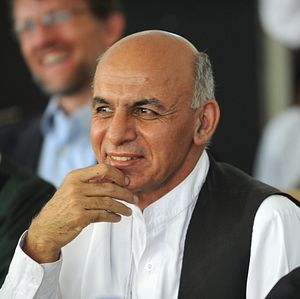Afghanistan’s new president, Ashraf Ghani, asked his government to refrain from using his tribal name for official purposes. A member of Afghanistan’s Pashtun plurality ethnic group, Ghani’s tribal name, Ahmadzai, identifies him as belonging to a specific Pashtun tribe. Tribal identities play an important role in Afghan politics, where local leaders and warlord exploit tribal affiliations to govern via clientelism. Ghani’s seemingly innocent gesture sends a message of unity from the central government of Kabul. This message could prove particularly strong considering Ghani was declared president after a months-long electoral process that brought the country to the verge of schism via ethnic lines. Ghani’s erstwhile opponent, Abdullah Abdullah, a member of Afghanistan’s Tajik minority, rules beside him in a national unity government.
Unsurprisingly, during his campaign from the presidency, Ghani made full use of his tribal name to appeal to Pashtun voters in the country’s southern and eastern regions. In multi-ethnic Afghanistan, mobilizing a majority of ethnic Pashtun voters turned out to be a winning recipe for Ghani. However, as Afghanistan embarks on an uncertain and potentially problematic experiment in power-sharing via a national unity government, Ghani’s gesture carries powerful symbolic weight. It harkens back to former Afghan President Mohammed Daoud Khan’s effort to forge an Afghan national identity by encouraging his countrymen to shed their tribal names as a show of patriotism.
Indeed, following the United States’ invasion of Afghanistan in 2001, one of the first socio-political dynamics journalists and analysts picked up on in Afghanistan is just how salient tribal identities can be, often at the expense of a broader sense of patriotism. One New York Times article cited a Pashtun tribal chief who identified with his tribe first and with his ethnic group second. The reporters remarked that for this individual, “being an Afghan is a distant third.”
Historically, Afghan central governments based in Kabul have had trouble exerting influence in the far reaches of the country’s diverse provinces. Afghanistan’s ethnicities occupy geographically distinct regions. In broad strokes, Pashtuns occupy the country’s southern and eastern areas, Tajiks occupy the northeast and northwest, Uzbeks and Turkmens live in the north, and ethnic Hazaras live largely in the center. Since the Soviet invasion in the 1980s, the country has seen regional governors and warlords wield disproportionate influence compared to fledgling governments in the country’s capital.
Ghani’s tribe, the Ahmadzai, are one of the largest Pashtun tribes in Afghanistan. Ghani himself is form Logar Province, just south of Kabul. According to one study of ethnic identity in Afghanistan, the Ahmadzai traditionally “controlled the Altimur Pass leading into Southern Paktia, and ranged from Logar to Jalalabad. Traditionally a large portion of the tribe was Kuchi and nomadic. As such, they were often regarded as martial in nature. They are greatest in number in Paktia, Paktika, and Khost [provinces].”
Afghanistan’s seemingly perennial governance problems largely stem from the fact that Kabul-based governments fail to project influence across the country. Ghani’s gesture is a reminder that for Afghan reconstruction to be successful and for the country to avoid the slippery slope leading back to crisis, Afghan national identity will need to triumph over narrower tribe-based identities.

































